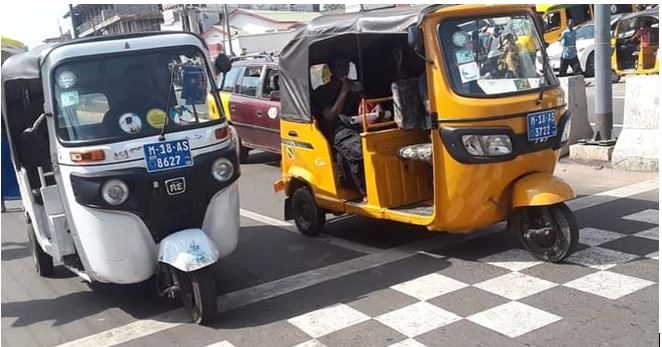By Kizito CUDJOE
The Centre for Extractives and Development Africa (CEDA) is pushing for wider adoption of electric two and three-wheelers in Ghana, saying this could speed up the country’s energy transition goals and make daily travel easier for thousands of commuters.
Electric two (E2) and three-wheelers (E3), CEDA said, could transform daily travel for thousands of Ghanaians who rely on motorcycles and tricycles for work and transport.
Samuel Bekoe, Executive Director-CEDA, noted that the country’s transport sector is a significant contributor to carbon emissions and is the largest CO2-emitting sector, accounting for 38 percent of total national CO2 emissions.
He particularly observed that 2 wheelers (okada) and 3-wheelers (tricycles) have experienced significant importation and use, especially in urban centres like Accra and Kumasi, while remaining a key transport option for many rural communities.
He said the rising use of okada and tricycles continues to drive greenhouse gas emissions, despite Ghana’s commitments under its Nationally Determined Contributions (NDCs) and energy transition (ET) agenda.
“The transport sector remains key under Ghana’s goal of net-zero emissions by 2070,” Mr. Bekoe added. Transitioning the sector is projected to cost about US$550billion – representing 70 percent of the total energy transition bill, including infrastructure development.
He said a key gap under the current arrangement is lack of regulation and strategic planning around the widespread use of okadas and tricycles, which remain largely unregulated.
It was revealed that between January 2017 & December 2021, a total of 17,660 plug-in electric vehicles and 9,431 motorised electric 2 and 3-wheeled vehicles were imported into Ghana.
Against this backdrop, the Executive Director of CEDA – who was speaking during an interview in Accra at the inception meeting and stakeholder launch of their research initiative -said CEDA’s two-year project, from 2025 to 2027, therefore explores transition pathways for electric two and three-wheelers in Ghana.
The project will review existing research, policies and regulatory frameworks. It will also look to assess long-term prospects for local assembly, manufacturing and servicing, as well as evaluate the potential impact of E2 and E3s on employment and climate goals.
CEDA’s work is supported by the UK’s Foreign, Commonwealth and Development Office (FCDO) and Climate Compatible Growth programme, a consortium of British universities.
The project is expected to lead to reduced greenhouse gas emissions, contributing to climate change mitigation.
Furthermore, it is hoped to strengthen the regulatory framework on E2 and E3 wheelers in the country, improving the business environment of it as well as increasing support for its adoption.
Technical Director at the office of the Minister of State for Climate Change and Sustainability, Cedric Dzelu – also speaking on behalf of the sector minister, said the work of CEDA and its partners aligns with government’s pursuit of regularising the okada transport business.
“I’m very excited that the adoption of E2 and E3 wheelers is being pushed. Hopefully, at the policy level, such examples will contribute to the minister’s drive to ensure that subsidies, grants and all the things that are needed to make this realisable are done,” he said.
Mr. Dzelu added that government welcomes the work of stakeholders such as CEDA, ensuring stakeholder inclusivity and engagement.
He stressed the importance of stakeholder support for making okada and tricycle operations efficient, safe and fully regulated.










